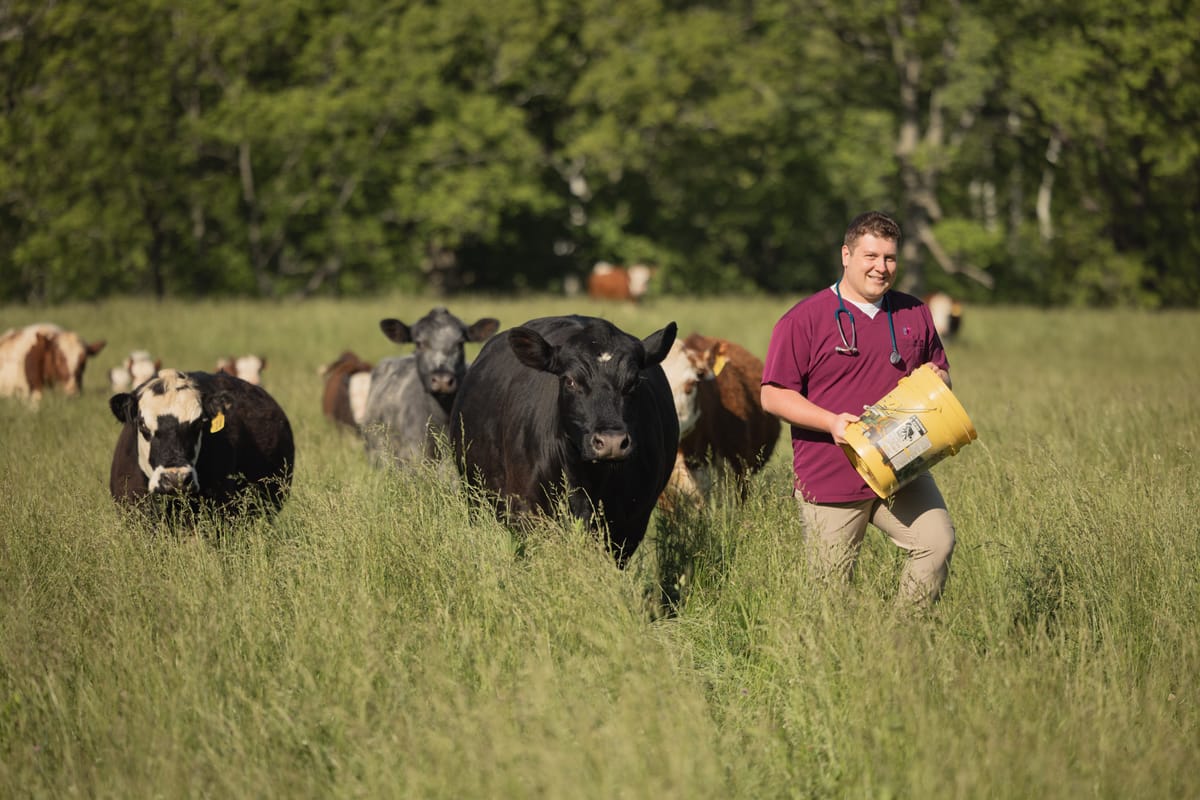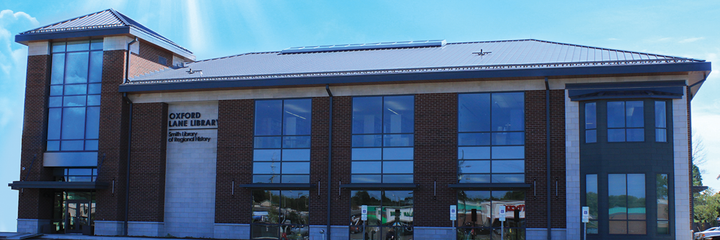Oxford local welcomed as new large animal veterinarian for Animal Care Clinic
Jacob Schlichter recently started his full-time job as a large animal veterinarian for the Animal Care Clinic, serving the community where he grew up.

Jacob Schlichter grew up in a farming family in the Talawanda School District. He’s spent plenty of time around cattle and other animals, and as a student he was active in 4H and FFA.
So when it came time to decide on a career, becoming a veterinarian was a natural choice.
This summer, Schlichter started his full-time job as a large animal veterinarian for the Animal Care Clinic in Oxford, serving the farmers of the community he’s called home for his whole life.
“I can connect with these people on a different level, being a local,” Schlichter said. “Knowing so many people in the area allows me to feel more comfortable and be able to practice medicine the way I want and not have to worry about making all these new connections on top of doing all my vet obligations.”
Schlichter went to Miami University for his undergraduate degree. That was when he first started volunteering and later working for the Animal Care Clinic. After graduating with a degree in zoology, he got his Doctor of Veterinary Medicine from Lincoln Memorial University’s Center for Veterinary Medicine.
As a large animal vet, Schlichter focuses on treating cows, sheep, goats and pigs. Oxford and its surrounding townships are full of farms, but veterinary services for farm animals are more difficult to schedule with limited specialists and a huge number of clients.
A 2023 Johns Hopkins University study found that the country has lost 90% of its food animal veterinarians (FAVs) since World War II. FAVs now make up less than 2% of total veterinarians in the U.S., the study found.
According to the National Conference of State Legislatures, the shortage has an outsized impact on rural communities. In 2020, Ohio passed a law creating a debt assistance program for veterinarians to repay part or all of new vets’ educational loans to help address the shortage.
By helping serve farmers in the area, Schlichter said he hopes to alleviate some of the workload for other large animal vets in the area. He also said having more veterinarians takes some of the time burden away from livestock owners who may call several offices before finding someone able to help them in a short timeframe. For Schlichter, becoming a large animal vet was appealing both because of his background with farms and because of the variety the job offers.
“A small animal can be somewhat predictable,” Schlichter said. “A large animal, you don’t know if they’re going to try to run you over or anything like that.”
Molly Buckley, owner of the Animal Care Clinic, said now that Schlichter is on the staff, the clinic has two full veterinarians, including herself, for the first time since she took over the practice in 2009. Buckley said being a veterinarian is a calling, and she could see that Schlichter was especially interested in large animals.
“Large animal veterinary care is different from small animal,” Buckley said. “It tends to be more outdoor work; it tends to be more physical. It tends to be a little bit harder to find large animal vets, so I would have been remiss if I had steered [Schlichter] away from that path.”
Veterinarian care includes many of the same techniques that human care does, Buckley said, but without the benefit of insurance for many pet and livestock owners. That means when preparing treatment options, she presents a spectrum of care at different price points to discuss options. Her job is to advocate for the pets while giving owners a realistic review of the options, Buckley said.
For Schlichter, his visits to clients so far have involved talking to the livestock owners to get an idea of any issues their animals are having, doing observations from a distance, then doing physical exams and making recommendations. Being able to develop treatment plans that make the clients feel heard has been one of the most rewarding aspects of the job so far, Schlichter said.
“The medicine is important, but if we don’t take care of the clients, we’re not doing our job fully,” Schlichter said. “Talking to them and making sure you understand how they’re feeling, that all really came together the last four years while I was in school.”
The Animal Care Clinic is open 8 a.m. to 6 p.m. Monday, Thursday and Friday, 9 a.m. to 6 p.m. Tuesday and 9 a.m. to 12 p.m. Saturday. The clinic is closed from 1 to 2 p.m. each day.




